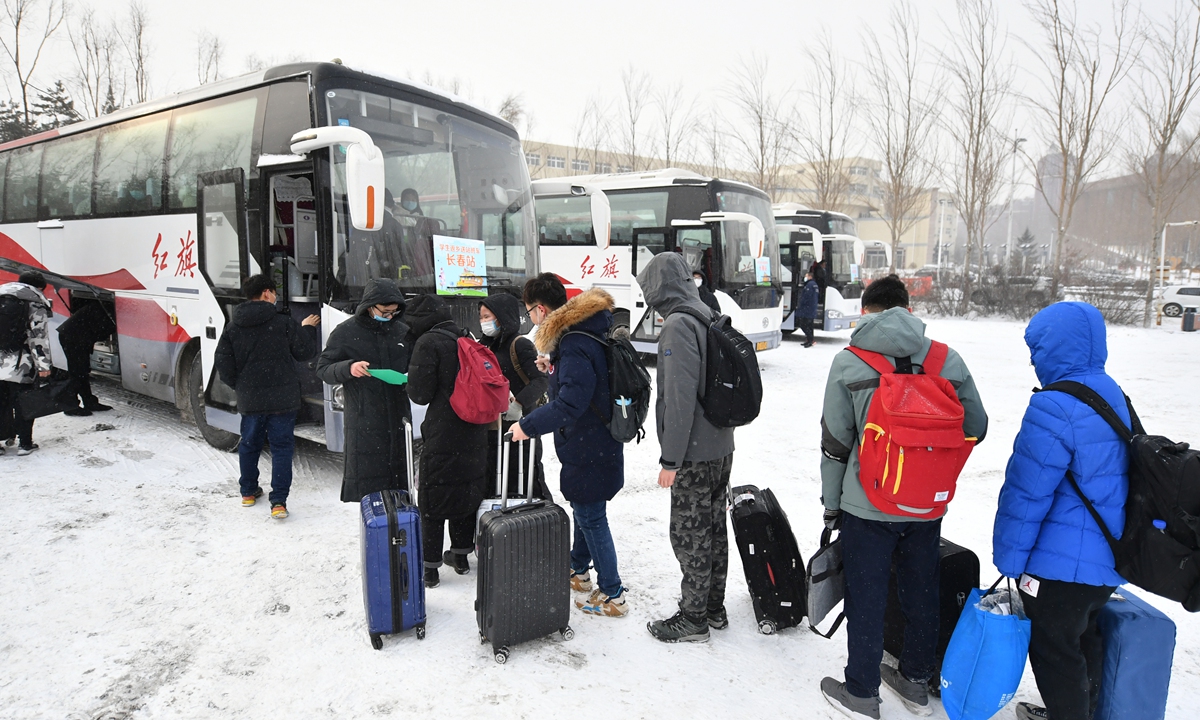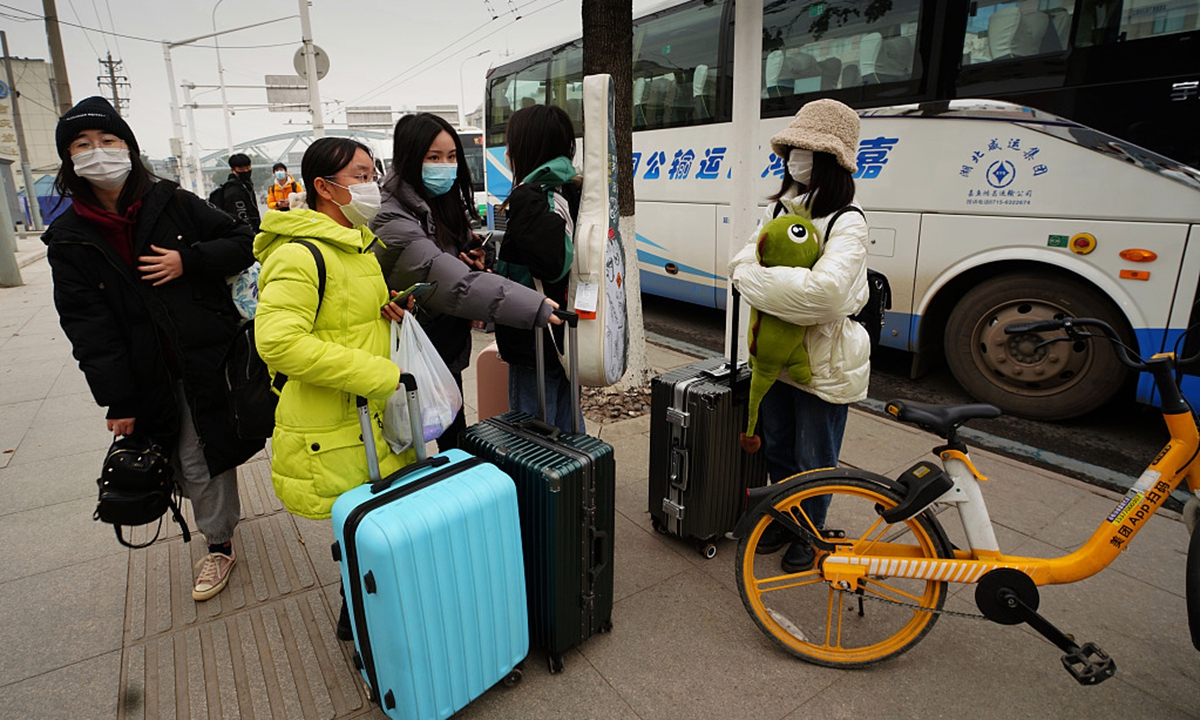'Peak-shifting' winter holiday kicks off in Beijing’s universities; more students choose to stay on campus

Students from Jilin University in northeast China's Changchun of Jilin Province start their winter holiday on Friday. Photo: cnsphoto
About half of Beijing's universities will finish classes for the semester and go on winter vacation in an orderly manner by the end of Friday. Many students studying in Beijing are preparing to face strict anti-epidemic measures in their hometowns, while others who decided (or have no other choice but) to stay on campus are waiting for a very different Spring Festival.
The Ministry of Education of China said in a statement at the end of December that colleges and universities should arrange their respective winter holidays based on the local epidemic situation with the principle of "peak-shifting" — to avoid massive returning clusters caused by universities' simultaneous holidays, and prevent overlapping student and returning worker flows during the Spring Festival rush.
Based on the Global Times' research, the Communication University of China is the earliest Beijing-based college to call the semester off, with their winter vacation starting on January 1. The Beijing Institute of Technology, on the other end of the spectrum, will not start its holidays until February 1.
A postgraduate student from Beijing University of Technology surnamed Li told the Global Times on Friday that his university's semester finishes on January 18 (actually on Friday as the weekend is a holiday), but he decided to stay on campus during the holiday and Spring Festival.
Li, whose hometown is in Chengde, Hebei Province, said that due to Beijing and Hebei's sporadic surges, his hometown is following strict prevention measures for arrivals, including requiring negative nucleic acid testing certificates taken within 72 hours to be presented upon arrival.

Photo: VCG
"Due to the epidemic, my experiment progress was delayed in 2020. So, I was worried that I could not come to Beijing after returning home for the Spring Festival because of any possible surges; if I wasn't allowed to come back, it would affect the progress of my graduation thesis," Li said.
"During the Spring Festival, students are encouraged to not go outside the campus, which will still operate normally. The dormitories, dining halls and bathrooms will all be open," Li noted.
China's elite Tsinghua University in Beijing, whose students all finished courses and exams on Thursday, has about 10,000 students who will stay on campus during the Spring Festival, which is far more than previous years, the Global Times learned.
Normally, there are 16 weeks of classes and 2 weeks of exams, but this year, final exams were held in the 15th week due to the epidemic, so winter holidays will be held about half a month earlier than in the past, a student surnamed Jing from Tsinghua University told the Global Times, noting that most of those who decided to stay are postgraduate students.
Students from Peking University, Tsinghua's neighbor university, will go on holiday on January 25 through until March 7, according to the university's arrangement.
Besides universities in Beijing, Jilin University in northeast China's Changchun city of Jilin Province embarks on winter holidays on Friday, following other universities in the city. All universities will also adhere to the principle of returning to campus at different peak times.
Regarding sporadic cases still on the rise in Beijing and some cities in neighboring Hebei, the safety of students during the upcoming Spring Festival rush became the main focus of the authorities. The National Development and Reform Commission said on Friday that during the Spring Festival travel rush, China will implement the mutual recognition of technically mature QR health codes across the country.
The presale of railway tickets for the upcoming Spring Festival travel rush has dropped by nearly 60 percent compared to the same period last year, with passenger-flow volumes estimated to drop to 296 million trips this festival, said China's railway authorities on Friday.

